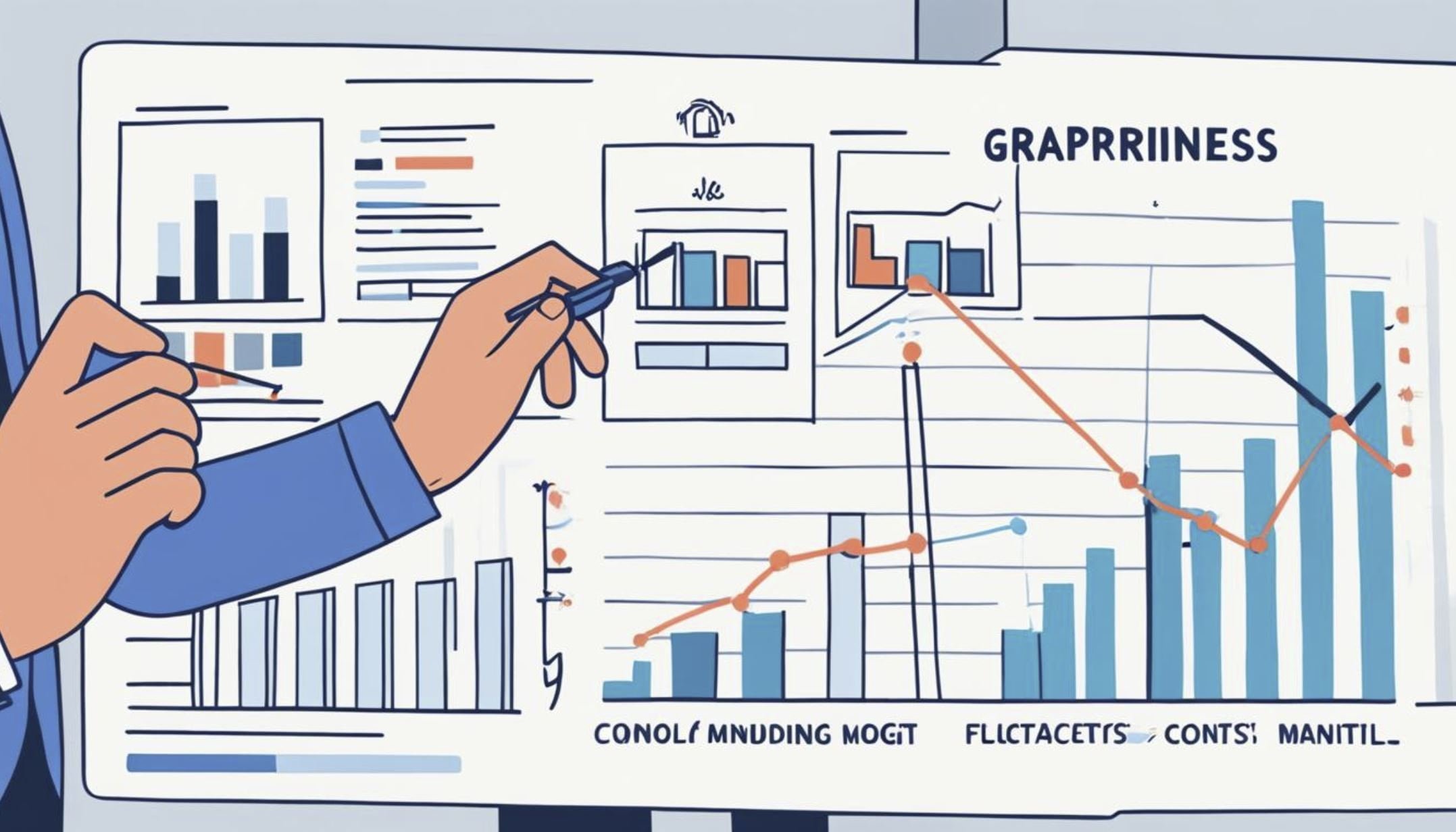When it comes to running a small business, managing digital marketing costs is crucial for sustainable growth. To make the most out of your marketing budget, it’s essential to understand the expenses involved and how they align with industry benchmarks. By optimizing your small business marketing costs, you can maximize your return on investment (ROI) and achieve effective marketing campaigns.
Before diving into the details, it’s important to research the typical digital marketing costs for a small business in your industry. B2B companies often allocate between 2% and 5% of their revenue to marketing, while B2C companies may invest between 5% and 10%. Understanding these industry standards sets a benchmark for your own marketing budget.
Key Takeaways
- Research industry benchmarks to determine the appropriate percentage of revenue to allocate towards marketing.
- Set clear and measurable marketing goals that align with your target customer segments.
- Consider all potential marketing costs, including website development, social media advertising, and staff training.
- Monitor and track your marketing expenses regularly to assess the success of your efforts.
- Adjust your marketing budget based on data analysis to optimize your spending over time.
Jump To:
Set Clear Goals for Your Marketing
As a small business owner, setting clear and measurable marketing goals is crucial for the success of your marketing efforts. By defining specific marketing objectives, you can effectively plan and execute targeted campaigns that drive results. Here are some key steps to set small business marketing goals:- Identify your target audience: Understand your customer segments and their needs. Conduct market research to gather insights about their preferences, behaviors, and pain points.
- Define actionable goals: Determine the actions you want your customers to take. Whether it’s increasing website traffic, generating leads, boosting sales, or improving brand awareness, make sure your goals are specific and attainable.
- Create measurable metrics: Develop metrics to track and evaluate your progress. This could include key performance indicators (KPIs) such as website conversions, click-through rates, social media engagement, or customer retention.
- Set timeframes: Establish deadlines to create a sense of urgency and ensure accountability. Time-bound goals help you stay focused and motivated to achieve results within a defined timeframe.
Consider All Potential Digital Marketing Costs
When allocating your marketing budget for your small business, it’s important to consider all potential marketing costs. By understanding the different categories and expenses involved, you can optimize your budget allocation and make informed decisions that drive results. Here are some key marketing cost categories to consider:Website Development and Maintenance
Your website is your online storefront, and it’s crucial to invest in its development and maintenance. This includes upfront costs for web design, content creation, and ongoing expenses for hosting, domain renewals, and website updates.Social Media Advertising
In today’s digital age, social media advertising has become a powerful tool for small businesses. Allocate a portion of your marketing budget to promote your products or services on platforms like Facebook, Instagram, and LinkedIn. Consider targeting specific audience segments based on demographics, interests, or behaviors to maximize the impact of your campaigns. Following this advice you might check the article about – How to save money on Facebook AdsOnline Advertising
Online advertising, such as Google Ads or display ads on relevant websites, can help increase your online visibility and attract potential customers. Allocate a portion of your budget to these platforms and continuously monitor their performance to adjust your spending accordingly.Traditional Media Advertising
While digital marketing has gained popularity, traditional media advertising still has its place. This can include print ads, radio spots, or even television commercials. Evaluate the reach and target audience of different traditional media channels to determine the best allocation of your marketing budget.E-Newsletters
E-newsletters are an effective way to engage with your existing customer base. Budget for email marketing tools and the creation of engaging content that keeps your customers informed and encourages repeat business.Video Production
Video content is highly engaging and can help you stand out in a crowded market. Consider allocating a portion of your marketing budget to video production, whether it’s creating product demos, customer testimonials, or instructional videos.Staff Training
Investing in staff training can have a significant impact on your marketing efforts. This could involve workshops on social media marketing, content creation, or customer service training that helps your team deliver a consistent brand experience. Remember to allocate your marketing budget to each of these categories based on their importance and the effectiveness of each channel. Regularly review web analytics and track costs to assess the success of your marketing efforts and make data-driven adjustments to your budget. By considering all potential marketing costs, you can optimize your marketing budget allocation and drive better results for your small business
Keep Track and Adjust Your Marketing Budget
Continuously monitoring and tracking digital marketing costs is essential for small businesses. By reviewing web analytics regularly, you can gain valuable insights into the performance of your marketing efforts and make informed decisions regarding budget allocation. To ensure accuracy and effectiveness, it’s crucial to assess your marketing budget quarterly and annually. This evaluation allows you to compare your projections with actual spending, providing a comprehensive overview of your financial resources. By aligning your budget with real-time data, you can make necessary adjustments and refine your marketing efforts accordingly. Refining your marketing strategies based on the data collected enables you to optimize your budget allocation. By analyzing the performance of different marketing channels, you can identify which initiatives are driving the most significant results and allocate resources accordingly, maximizing the return on your investment. Regularly assessing and optimizing your marketing spend allows you to generate more accurate budgets over time. By continuously monitoring and adjusting your marketing budget, you can refine your efforts, improve your targeting, and ensure that your funds are utilized in the most effective and efficient way possible.Conclusion
Optimizing marketing costs for small businesses is crucial for maximizing marketing ROI and achieving effective results. By researching industry benchmarks, setting clear goals, considering all potential costs, tracking expenses, and making data-driven adjustments, small businesses can navigate the complexities of marketing budgeting. One important aspect of small business marketing optimization is understanding the appropriate percentage of revenue to allocate towards marketing. Researching what competitors in your industry are spending can provide valuable insights into industry standards. Allocating your budget based on B2B or B2C marketing strategies can also help determine an optimal investment. To ensure effective marketing campaigns, it’s essential to set clear and measurable goals. Identifying the actions you want customers to take and aligning your marketing efforts with the needs of your target customer segments will keep your strategies focused and purposeful. Regularly reviewing and refining your marketing budget is crucial for accurate allocation of resources. By tracking costs, analyzing web analytics, and adjusting your budget based on the data, you can make informed decisions and optimize your marketing spend over time, resulting in increased efficiency and improved ROI.FAQ
How much should I allocate for marketing costs for my small business?
It is recommended to allocate a percentage of your revenue towards marketing. B2B companies typically spend between 2% and 5%, while B2C companies may spend between 5% and 10%. Researching your industry and competitors’ spending can provide further guidance.
How do I set clear goals for my small business marketing?
Start by determining the customer actions you want to see, such as website visits, purchases, or consultations. Consider your target customer segments and their needs, and set specific, measurable, achievable, relevant, and time-bound (SMART) goals that align with addressing those needs.
What are the potential costs involved in small business marketing?
Marketing expenses can include website development and maintenance, social media advertising, online advertising (e.g., Google Ads), traditional media advertising, e-newsletters, video production, and staff training. Allocate your marketing budget to each category based on their effectiveness and adjust accordingly.
How do I keep track of and adjust my marketing budget for my small business?
Regularly monitor and track your digital marketing costs, reviewing web analytics to assess the success of your efforts. Evaluate your budget quarterly and annually, refine your marketing strategies based on data, and make adjustments to your budget accordingly.
How can I optimize marketing costs for my small business?
By researching industry benchmarks, setting clear goals, considering all potential costs, tracking expenses, and making adjustments based on data, small businesses can maximize their marketing ROI and make budget-friendly decisions that lead to effective marketing campaigns.
Source Links
- https://www.eyefulmedia.com/blog/small-business-digital-marketing
- https://www.bdc.ca/en/articles-tools/marketing-sales-export/marketing/what-average-marketing-budget-for-small-business
- https://mailchimp.com/resources/marketing-budget-for-small-business/
Continue Reading Our Marketing Blog
Book a Free Marketing Consultation Here



